The Pearl Box Read online
Page 2
We said in the last story, that Lettice had entered the street and wason her way with the work she had finished for the young lady. It was acold morning, the snow blew, and the street was slippery. She couldscarcely stand--her face was cold, and her hands so numbed that shecould scarcely hold the parcel she carried. The snow beat upon her poorbonnet, but she comforted herself with the idea that she might besupposed to have a better bonnet at home. She cheerfully trudged along,and at last entered Grosvenor Square, where the lamps were just dyingaway before the splendid houses, while the wind rushed down the Parkcolder than ever. A few boys were about the only people yet to be seenabout, and they laughed at her as she held her bonnet down with onehand, to prevent its giving way before the wind, while she carried herbundle and kept her shawl from flying up with the other.
At last she entered Green street, and came to the house of the kind ladywho had furnished her and many others with work; raised the knocker, andgave one humble knock at the door. She had never been at the housebefore, but she had sometimes had to go to other genteel houses whereshe had been met with incivility by the domestics.
But "like master, like man," is a stale old proverb and full of truth.The servant came to the door. He was a grave old man about fifty. Hiscountenance was full of kind meaning, and his manners so gentle, thatbefore hearing her errand, observing how cold she looked, bade her comein and warm herself at the hall stove.
"I have come," said Lettice, "with the young lady's work--I had not timeto come last night, but I hope I have not put her to anyinconvenience--I started before light this morning."
"Well, my dear, I hope not," said the servant, "but it was a pity youcould not get it done last night. Mrs. Danvers likes to have peopleexact to the moment. However, I dare say it will be all right."
As Reynolds, the servant-man, entered the drawing room, Lettice heard avoice, "Is it come at last!" And the young lady, who thus inquired, wasCatherine Melvin, who was then making an early breakfast before a nobleblazing fire.
"Has the woman brought her bill," asked Mrs. Danvers.
"I will go and ask," said the servant. "Stay, ask her to come up. Ishould like to inquire how she is getting along this cold weather."
Reynolds obeyed, and soon Lettice found herself in a warm, comfortablebreakfast room.
"Good morning," said Mrs. Danvers. "I am sorry you have had such a coldwalk this morning. I am sorry you could not come last night. This younglady is just leaving, and there is barely time to put up the things."Catherine (for this was the young lady's name,) had her back turned tothe door quietly continuing her breakfast, but when the gentle voice ofLettice replied:
"Indeed, madam, I beg your pardon, I did my very best"--Catherinestarted, looked up, and rose hastily from her chair--Lettice, advancinga few steps, exclaimed "Catherine."
And Catherine exclaimed--"It is--it is you!" and coming forward andtaking her by the hand, she gazed with astonishment at the wan face andthe miserable attire of the work-woman. "You," she kept repeating."Lettice! Lettice Arnold! Good Heavens! Where is your father? yourmother? your sister?"
"Gone," said the poor girl, "all gone but poor Myra!"
"And where is she? And you, dear Lettice, how have you come to this?"
Such was the unexpected meeting of these two persons, who were oncechildren of the same village of Castle Rising. Lettice had been workingfor her school-mate, Catherine Melvin. The result was a happy one, andit was not long before, by the kindness of Catherine, that the twoorphan girls were situated pleasantly in life. But as you will wish toknow how all this came about, I will give you the circumstances inanother story.
THE EXPLANATION.
Lettice's father was a man of education, a scholar, a gentleman, and hadmuch power in preaching. He received one hundred and ten pounds per yearfor his services. Her father's illness was long and painful, and thefamily were dependant on others for assistance.
"We at last closed his eyes," said Lettice, "in deep sorrow." He used tosay to himself, "It is a rough road, but it leads to a good place."
After his funeral, the expenses exhausted all that was left of theirmoney--only a few pounds were left when the furniture was sold, and "wewere obliged," said Lettice, "to give up the dear little parsonage. Itwas a sweet little place. The house was covered all over withhoneysuckles and jessamines; and there was the flower garden in which Iused to work, and which made me so hale and strong, and aunt Montagueused to say I was worth a whole bundle of fine ladies.
"It was a sad day when we parted from it. My poor mother! How she keptlooking back, striving not to cry, and poor Myra was drowned in tears.
"Then we afterwards came to London. A person whom we knew in the villagehad a son who was employed in one of the great linen warehouses, and hepromised to try to get us needlework. So we came to London, took a smalllodging, and furnished it with the remnant of our furniture. Here weworked fourteen hours a day apiece, and we could only gain between threeand four shillings each. At last mother died, and then all went; shedied, and had a pauper's funeral."
From this room the orphan girls removed soon after their mother'sdecease, and located among the poor of Marylebone street, where Mrs.Danvers accidentally met with the two sisters, in one of her visitsamong the poor, and for whom she obtained the work which led to theunexpected meeting related in the previous story.
JONAS AND HIS HORSE.
A horse is a noble animal, and is made for the service of man. No onewho has tender feelings can bear to see the horse abused. It is wickedfor any one to do so. A horse has a good memory, and he will neverforget a kind master. Jonas Carter is one of those boys who likes totake care of a horse. His father gave Jonas the whole care of anexcellent animal which he purchased for his own use. Every morning hewould go into the stable to feed and water him. As all the horses inthe neighborhood had names, Jonas gave one to his, and called him Major.Every time he went into the stable to take care of him, Major wouldwhine and paw, as if his best friend was coming to see him. Jonas kepthim very clean and nice, so that he was always ready for use at any timeof day. At night he made up his bed of straw, and kept the stable warmin winter and cool in summer. Major soon found that he was in the handsof a kind master, and being well fed, and well cleansed, he would oftenshow how proud and nice he was, by playing with Jonas in the yard. Hisyoung master would often let him loose in the yard, and when Jonasstarted to go in, the horse, Major, would follow him to the door, andwhen he turned him into the pasture, no one could so well catch him asJonas; for every time he took him from the pasture, Jonas would givehim some oats; so when he saw his master coming for him, he rememberedthe oats, and would come directly to him. Some horses are very difficultto bridle, but it was not so with Major. When Jonas came with thebridle, Major would hold his head down, and take in his bitts, andappear as docile as a lamb. He well knew that Jonas never drove himhard, but always used him kindly. Jonas was not a selfish boy; he waswilling to let his friends ride a short distance; and in the picture,you will see him talking with one of his young friends about his horse.
Now, children, you may be sure that a dumb animal will remember his kindmaster; and if ever you own a horse, or drive one which belongs toanother, be sure and treat him kindly. And you will find this rule towork well among yourselves. Be kind to each other, and to all whom youmeet with, and it will help you along the pleasant path of life, andsecure to you many friends.
EDWARD AND ELLEN.
Edward Ford owned a snug little cottage with a small farm situated abouta mile from the village. When he was married to Ellen G----, who wassaid to be one of the best girls in the village, he took her to his nicelittle home, where he had every thing around very pleasant andcomfortable. Ellen was very industrious and remarkable for her prudenceand neatness. She spun and churned, and tended her poultry, and wouldoften carry her butter and eggs herself to market, which greatly addedto their comfort. She had a beautiful-little girl, and they gave herthe name of Lily. Things glided smoothly on until Lily was sixteen.Ed
ward was very fond of the violin and of reading books that were notvery useful, and as he was very fond of music, he spent a great dealmore time in making music and playing the violin than what his wifethought profitable. Ellen loved music, and was willing to have him readprofitable books, but all this while she thought he might be patching upthe fences and improving the shed for the better comfort of the cattle.Still she would not complain, hoping all the time that he would see thenecessity of being a little more industrious. The winter came, and allthrough its dreary months he was unable to work, as he was sick. Andalthough Ellen worked hard, yet her husband required so much of herattention, that all her efforts availed not much to keep poverty out oftheir cottage. When the spring came, Ellen's husband was able to beabout again, and she began to hope that Edward would be moreindustrious, and they would be able by strict economy to repair the lossoccasioned by his winter's illness, which had put them so farbehindhand. Edward had become lazy or disheartened. Affairs about housecontinued to grow worse; his farm was ill worked or neglected, and bythe fall, his horse and oxen had to go for necessary expenses. Ellenstill kept her cows, but it was now very little help she received fromher husband. He had been formerly one of the most temperate of men, butnow he spent his days from home; and here lay Ellen's deepest sorrow. Hewas often at the village tavern, wasting in senseless riot the time,health and means that God had given him for other purposes. Ellen feltsad, and in the next story you will see a painful scene in the life of
LILY FORD.
It was now in the latter part of December--two days more and comes theseason of "Merry Christmas." Ellen thought of the dreary prospect beforeher. As she was thinking over her condition, and how she should manageaffairs so as to make home comfortable, the door opened, and in cameEdward earlier than usual, a sober man. With a grateful heart Ellen satabout preparing the supper, and made all the evening as pleasant as shecould for him.
The next morning earlier than usual Edward was preparing to go out. Theweather was bitter cold, and the wood pile was very low. She did notlike to ask Edward to split some wood the evening before, as she didnot wish to vex him. Of late he had harshly refused her simple requests.She, however, ventured this morning to ask him to split a few logs, andhe replied:
"Why did you not ask me when you saw me doing nothing all last evening?You must get along the best way you can until night. I have engaged towork for Squire Davis, and I shall be late unless I go at once."
"To work! Have you?" said Ellen, in a pleased and grateful tone.
"Yes; so don't detain me. I am to have a dollar and a half a day as longas I choose to work."
"How very fortunate!" said Ellen.
After he was gone, Ellen busied herself in making things comfortable forthe children. It was market day, and she must carry her heavy basket tothe village for the different families who depended upon her for theirsupply of fresh butter and eggs. A year ago she had a neat little-wagonand a good horse to drive. There was something in the mind of Ellen,what it was she could not tell, a kind of sad presentiment of something,as she was preparing to go to market. I shall tell you in the next storywhat it was. You will see that Ellen was very kind to her husband, andtried every way to make him happy.
THE MARKET DAY.
Mrs. Ford had three little children, Lily, Hetty, and a dear littlebabe. As she was now going to market, she told Lily, her oldestdaughter, to take good care of the baby. Lily promised to do so. It wasa very cold day. For a time the children got along very well; but soonthe wood was all burned, not a stick or chip remained; as their fatherhad gone away in the morning without splitting any, so they were obligedto do the best they could. The baby began to look as if it was cold, andLily said:
"Come, Hetty, we will go out and see if together we cannot roll in oneof those great logs."
Hetty was eleven years old. Lily put the baby in the cradle and thenwent out with Hetty to roll in the log. They rolled it up to the step,and got it part way into the door, but, alas! they could not get itfurther. There it stuck in the doorway, and the door was wide open; thewind and snow beat in from without, and the fire gradually settled awayin its embers.
Something must now be done. Hetty put on her cloak and hood and set outfor her mother; for she told them if anything happened to be sure andcome for her. Hetty soon found her mother at the village store, andwithout stopping to warm herself, she said:
"O mother, come home, for little Eddy is sick, and Lily says it is thecroup, and that he is dying. The fire is all out, and the room is fullof snow, because the big log we tried to roll in stuck fast in thedoorway."
Hetty and her mother hastened home: and as they were crossing thestreet, there was her husband just entering the tavern. She told himabout little Eddy, and he promised to go for a physician, and to comehome immediately; and by the time they had gone half way home, Edward,her husband, joined them.
They hurried along, and as they came near the cottage there stood two ofthe cows, and under the shed was the third, the old "spotted cow," whichHetty thought was in the pond when she left home. To their surprise thelog was rolled away from the door, and as Mrs. Ford opened the door witha trembling hand, fearing her baby was dead, there was a young mansitting by a good fire, which he had made while Hetty was gone, withlittle Eddy folded in his arms. The anxious mother bent over her baby ashe lay in the stranger's arms, and seeing his eyes closed, shewhispered:
"Is he dead?"
"He is not, he only sleeps," replied the stranger.
This young man came into the house in time to save the baby from thecold chills of death. He was ever after a friend to the family--a meansof Edward's reformation, so that with some assistance the mortgage onthe farm was paid off, and the farm re-stocked. This stranger became thehusband of Lily, the eldest daughter.
THE TWO MAMMAS.
FOR HENRY AND EDWARD.
'Tis strange to talk of two mammas! Well, come and sit by me, And I will try to tell you how So strange a thing can be.
Years since you had a dear mamma, So gentle, good and mild, Her Father God looked down from heaven, And loved his humble child.
Thy first mamma died on board of the vessel which took her from Burmah.At parting--
----She kissed her little boys With white and quivering lip; And while the tears were falling fast, They bore her to the ship.
And Abby, Pwen, and Enna went-- Oh! it was sad to be Thus parted--three upon the land, And three upon the sea.
Thy first mamma was buried on a distant rocky isle, where none butstrangers rest. The vessel passed on her voyage, and--
At length they reached a distant shore, A beautiful bright land, And crowds of pitying strangers came, And took them by the hand.
And Abby found a pleasant home, And Pwen and Enna too; But poor papa's sad thoughts turned back To Burmah and to you.
He told me of his darling boys, Poor orphans far away, With no mamma to kiss their lips, Or teach them how to pray.
And would I be their new mamma, And join the little band Of those who, for the Saviour's sake, Dwell in a heathen land?
Much do I love my darling boys, And much do they love me; Our Heavenly Father sent me here, Your new mamma to be.
And if I closely follow Him, And hold your little hands, I hope to lead you up to heaven, To join the angel bands.
Then with papa and both mammas, And her who went before, And Christ, who loves you more than all, Ye'll dwell for ever more.
MRS. JUDSON.
MELLY, ANNA AND SUSY.
There is nothing more pleasant than to see brothers and sisters, lovelyin their lives, and in all their plays kind and obliging to each other.Mrs. Jones' three little children were always noted for their goodbehavior by all the people in the village, and the school teacher saidthey were the prettiest behaved children she ever saw, and this wassaying much in their
praise, for her scholars were noted for very goodbehavior and promptness in their recitations. Mrs. Jones kept herchildren under a good discipline, but she always gave them time andopportunities for their pleasant plays. She would not allow them toassociate with vicious children, because "evil communications corruptgood manners," and she knew her children were as liable to fall into badhabits as any others. There were a few vicious boys in the village whereshe lived who always took delight in teasing and vexing the otherchildren, and sometimes these boys would try some method to break up thechildren's play.
One afternoon, there being no school, Mrs. Jones gave her littlechildren permission to go into the lower back-room and spend awhile inplay. Away they jumped and skipped along down stairs to the play room,with merry hearts and smiling faces. They had not been there a longtime before they heard a very singular noise, which they did not knowwhat to make of. But they soon forgot it, and continued playing with thesame cheerfulness; very soon again they heard the same noise, whichsounded like somebody's voice. The children began to be a littlefrightened, and you will see them in the picture standing "stock still,"while little Susy stretches her hand out to take hold of the post, andis in the act of running away. Molly and Anna put their fingers to theirlips, and listened again to know what the noise could mean. Soon thenoise was repeated, and away they flew to their mother's arms in such atremor that she felt at the moment alarmed herself. They told theirmother what had happened, and all that night the children could notsleep.

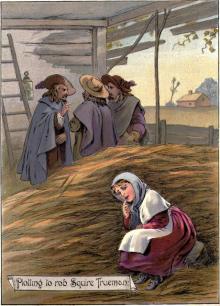 Goody Two-Shoes
Goody Two-Shoes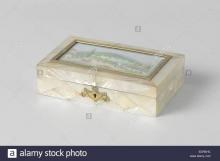 The Pearl Box
The Pearl Box And when you gone...
And when you gone... Stranger At The Other Corner
Stranger At The Other Corner My Young Days
My Young Days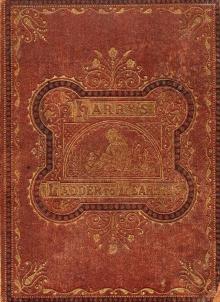 Harry's Ladder to Learning
Harry's Ladder to Learning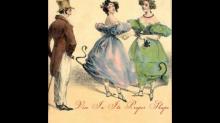 Vice in its Proper Shape
Vice in its Proper Shape_preview.jpg) Promise (the curse)
Promise (the curse)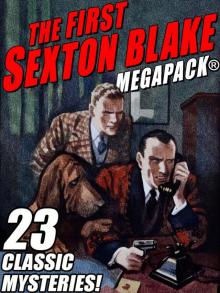 The First Sexton Blake
The First Sexton Blake Golden Moments
Golden Moments Hildebrand; or, The Days of Queen Elizabeth, An Historic Romance, Vol. 2 of 3
Hildebrand; or, The Days of Queen Elizabeth, An Historic Romance, Vol. 2 of 3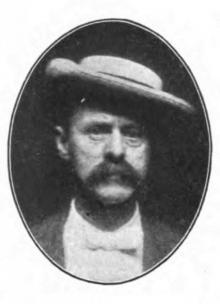 The Ice Queen
The Ice Queen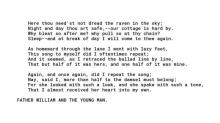 Phebe, the Blackberry Girl
Phebe, the Blackberry Girl Stoned Immaculate
Stoned Immaculate Hildebrand; or, The Days of Queen Elizabeth, An Historic Romance, Vol. 3 of 3
Hildebrand; or, The Days of Queen Elizabeth, An Historic Romance, Vol. 3 of 3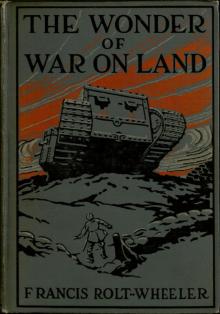 The Wonder of War on Land
The Wonder of War on Land Breaking Bailey
Breaking Bailey The Little Girl Who Was Taught by Experience
The Little Girl Who Was Taught by Experience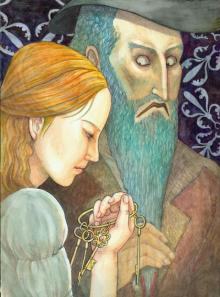 The Popular Story of Blue Beard
The Popular Story of Blue Beard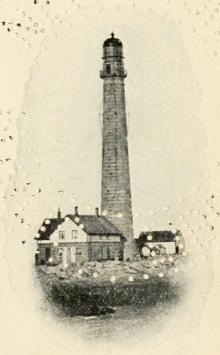 The Life Savers: A story of the United States life-saving service
The Life Savers: A story of the United States life-saving service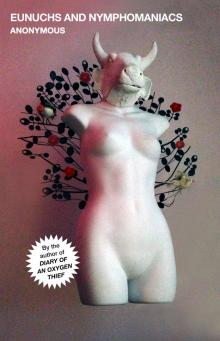 Eunuchs and Nymphomaniacs
Eunuchs and Nymphomaniacs Hildebrand; or, The Days of Queen Elizabeth, An Historic Romance, Vol. 1 of 3
Hildebrand; or, The Days of Queen Elizabeth, An Historic Romance, Vol. 1 of 3 Kitty's Picnic, and Other Stories
Kitty's Picnic, and Other Stories Two Yellow-Birds
Two Yellow-Birds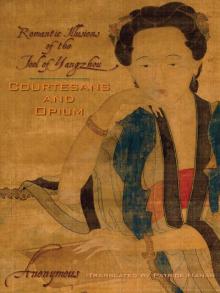 Courtesans and Opium
Courtesans and Opium The Emigrant's Lost Son; or, Life Alone in the Forest
The Emigrant's Lost Son; or, Life Alone in the Forest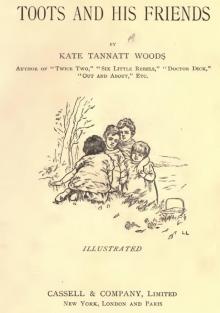 Toots and His Friends
Toots and His Friends Fast Nine; or, A Challenge from Fairfield
Fast Nine; or, A Challenge from Fairfield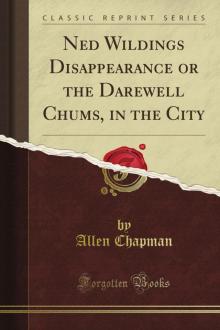 Ned Wilding's Disappearance; or, The Darewell Chums in the City
Ned Wilding's Disappearance; or, The Darewell Chums in the City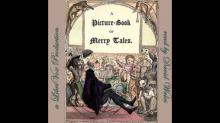 A Picture-book of Merry Tales
A Picture-book of Merry Tales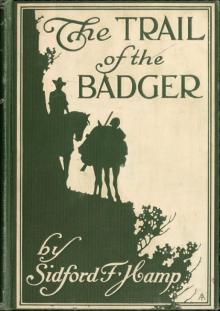 The Trail of The Badger: A Story of the Colorado Border Thirty Years Ago
The Trail of The Badger: A Story of the Colorado Border Thirty Years Ago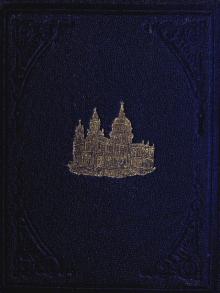 Peter Parley's Visit to London, During the Coronation of Queen Victoria
Peter Parley's Visit to London, During the Coronation of Queen Victoria The Rainbow, After the Thunder-Storm
The Rainbow, After the Thunder-Storm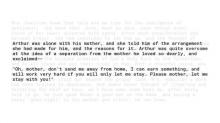 Arthur Hamilton, and His Dog
Arthur Hamilton, and His Dog The Story of the White-Rock Cove
The Story of the White-Rock Cove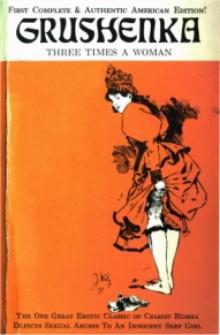 Grushenka. Three Times a Woman
Grushenka. Three Times a Woman Adventures of a Squirrel, Supposed to be Related by Himself
Adventures of a Squirrel, Supposed to be Related by Himself Falling in Love...Again
Falling in Love...Again The Colossal Camera Calamity
The Colossal Camera Calamity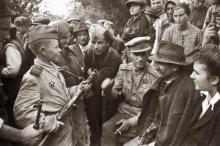 Child of the Regiment
Child of the Regiment Elimination Night
Elimination Night The Kingfisher Secret
The Kingfisher Secret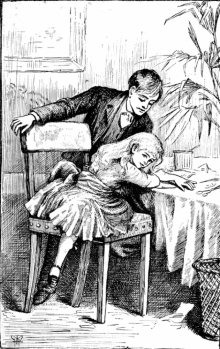 Left to Ourselves; or, John Headley's Promise.
Left to Ourselves; or, John Headley's Promise. The Island of Gold: A Sailor's Yarn
The Island of Gold: A Sailor's Yarn Adventures of Bobby Orde
Adventures of Bobby Orde Twain, Mark: Selected Obituaries
Twain, Mark: Selected Obituaries When Love Goes Bad
When Love Goes Bad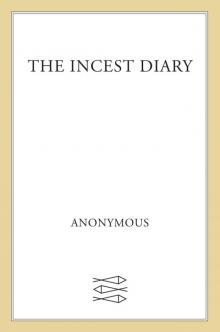 The Incest Diary
The Incest Diary Calling Maggie May
Calling Maggie May The Infidelity Diaries
The Infidelity Diaries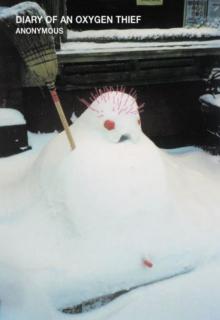 Diary of an Oxygen Thief (The Oxygen Thief Diaries)
Diary of an Oxygen Thief (The Oxygen Thief Diaries) ARABELLA
ARABELLA The Eye of the Moon
The Eye of the Moon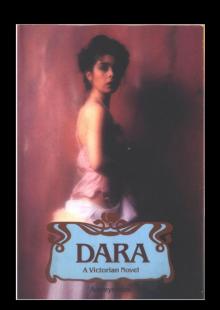 Dara
Dara THE ALTAR OF VENUS: The Making of a Victorian Rake
THE ALTAR OF VENUS: The Making of a Victorian Rake The Book of Death
The Book of Death The Book of David
The Book of David The Devil's Graveyard
The Devil's Graveyard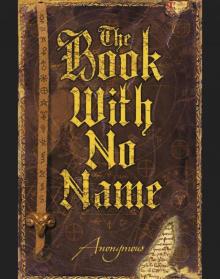 The Book With No Name
The Book With No Name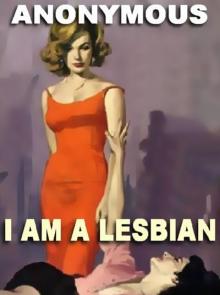 I Am A Lesbian
I Am A Lesbian Njal's Saga
Njal's Saga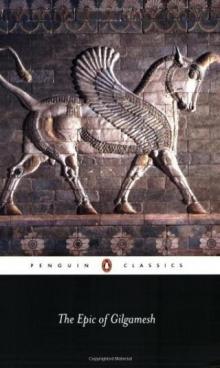 The Epic of Gilgamesh
The Epic of Gilgamesh Darling
Darling Tal, a conversation with an alien
Tal, a conversation with an alien Go Ask Alice
Go Ask Alice Aphrodizzia
Aphrodizzia The Campus Trilogy
The Campus Trilogy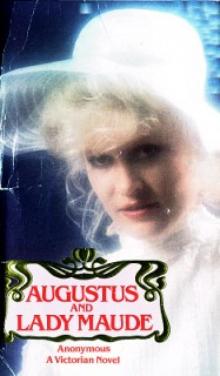 Augustus and Lady Maude
Augustus and Lady Maude Lucy in the Sky
Lucy in the Sky Sight Unseen
Sight Unseen Pleasures and Follies
Pleasures and Follies The Red Mohawk
The Red Mohawk A Fucked Up Life in Books
A Fucked Up Life in Books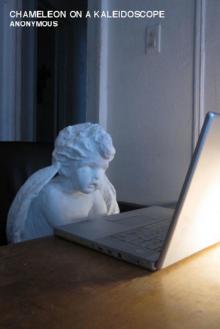 Chameleon On a Kaleidoscope (The Oxygen Thief Diaries)
Chameleon On a Kaleidoscope (The Oxygen Thief Diaries) Astrid Cane
Astrid Cane BEATRICE
BEATRICE The Song of the Cid
The Song of the Cid